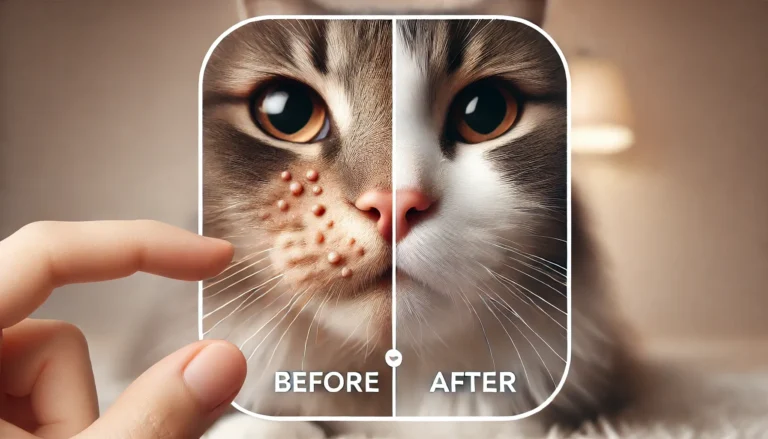Are Roses Toxic to Cats? A Comprehensive Guide for Pet Owners

Introduction to Are Roses Toxic to Cats
When it comes to ensuring the safety of our feline friends, the question “are roses toxic to cats?” is one that often pops up among cat owners. Roses, with their enchanting beauty, are a common feature in homes and gardens, but can they pose a risk to cats? In this article, we’ll dive deep into the world of roses and cats, exploring whether roses are safe for cats and what precautions should be taken.

1. Introduction to Roses and Feline Safety
Roses are celebrated worldwide for their beauty and aroma. However, for cat owners, the presence of roses often brings a mix of joy and concern. Cats are naturally curious creatures, often intrigued by the texture and scent of plants, including roses. This leads to an important inquiry—are roses poisonous to cats?
2. The Reality About Roses and Cat Safety
Contrary to some beliefs, roses themselves are not toxic to cats. This means the petals, leaves, and stems do not contain substances that can poison cats. However, this doesn’t mean they are entirely safe. Issues such as thorns can pose physical dangers, and roses treated with pesticides or other chemicals can be hazardous.
3. Understanding Potential Risks
While roses are not toxic to cats, several factors can still put feline health at risk:
- Thorns on roses can cause injuries if a cat attempts to chew on them.
- Pesticides used on roses might be toxic if ingested by cats.
- Other flowers in rose arrangements might be toxic. For example, lilies found in mixed bouquets are extremely poisonous to cats.
4. Symptoms of Exposure in Are Roses Toxic to Cats?
If your cat consumes any part of a rose treated with pesticides, or if it gets injured by thorns, symptoms could include:
- Vomiting or diarrhea
- Pawing at the mouth or face due to injuries
- Lethargy or reduced appetite
5. Safe Practices in Homes with Cats and Roses
To safely keep roses in a home with cats, consider the following:
- Keep roses out of reach: Ensure roses are placed where cats cannot access them.
- Choose organic roses: Opt for roses grown without chemical treatments.
- Regularly check for thorns: Remove thorns from roses to prevent injuries.
6. Safe Flower Alternatives
For those looking for safer floral options, consider flowers safe for cats such as sunflowers, snapdragons, or orchids. These flowers pose no toxicity risk to cats and are great alternatives to roses in a household with pets.
7. What if Your Cat Eats a Rose?
If you suspect your cat has ingested part of a rose or a potentially toxic plant:
- Observe your cat for any signs of distress or unusual behavior.
- Consult your veterinarian immediately if you notice any symptoms of poisoning or injury.
8. Preventing Feline Accidents with Plants
To prevent accidents, it’s crucial to educate oneself about what flowers are poisonous to cats and to practice safe gardening:
- Avoid toxic flowers: Besides lilies, other toxic flowers to cats include tulips and amaryllis.
- Use physical barriers: Consider using cat-repellent techniques or barriers to keep cats away from certain plants or areas of the garden.
9. Roses and Multi-Pet Households
In households with both cats and dogs, the same rules generally apply. While roses are not toxic to dogs either, the combined curiosity of cats and dogs can lead to increased chances of thorn injuries or accidental ingestion of harmful substances.
10. Conclusion: Balancing Beauty and Safety
In conclusion, while roses are not poisonous to cats, they require careful handling and awareness from pet owners. By understanding the risks and taking proactive steps to mitigate them, cat owners can enjoy the beauty of roses without compromising the health and safety of their pets.
Do you know?
Terrier breeds are known for their energetic, fearless, and playful personalities. Originally bred for hunting small animals, these dogs have become popular companions due to their intelligence and loyalty.
11. Further Resources
For more detailed information on plant toxicity and pet safety, resources such as the ASPCA’s list of toxic and non-toxic plants can be invaluable. Additionally, always having a line of communication open with your vet can ensure that your pets remain safe and healthy in a beautiful, flower-filled environment. Are Roses Toxic to Cats is the more asked question related to these questions.
Conclusion of Are Roses Toxic to Cats
Through this exploration, it’s clear that the interaction between cats and roses is safe from a toxicity standpoint, but not without its concerns. Cat owners need to be vigilant about physical dangers and the potential for chemical exposure. This vigilance ensures that both the aesthetic and the safety of your home environment can coexist harmoniously.
Can I have roses in the house with cats?
Yes, you can have roses in the house with cats, as they are not toxic. However, watch out for thorns which can injure your cat, and ensure roses are free from pesticides.
Why do cats like eating roses?
Cats may be drawn to roses due to their texture, scent, or simple curiosity, especially if they like to chew on various plants.
Are roses pet friendly?
Roses are generally pet friendly as they are not toxic to cats or dogs. Care should be taken to remove thorns to prevent injuries.
Are rose petals toxic?
No, rose petals are not toxic. They are safe for cats and dogs, but it’s best to ensure they haven’t been treated with any harmful chemicals or pesticides.


